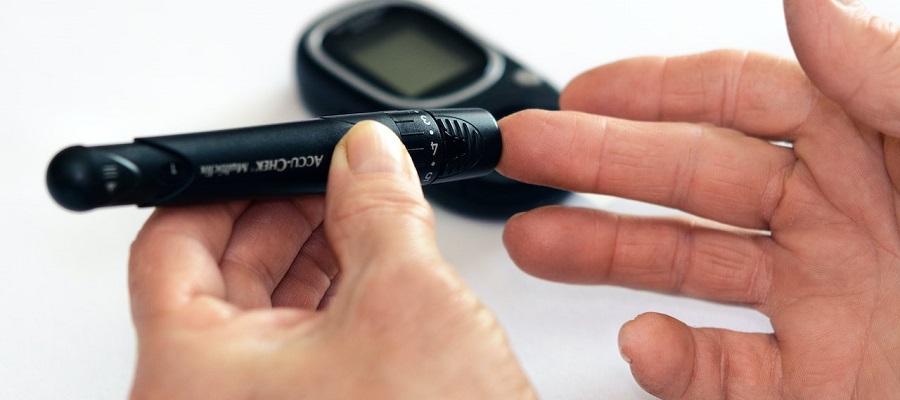There are several supplements that may help lower blood pressure, although it is important to note that supplements should not be used as a substitute for prescribed medications or other recommended treatments for high blood pressure. Here are a few supplements that may have some evidence of effectiveness in lowering blood pressure:
-
Omega-3 fatty acids: These healthy fats, found in fish oil and some plant-based sources, may help lower blood pressure.
-
Coenzyme Q10: This enzyme is involved in the production of energy in cells and may have blood pressure-lowering effects.
-
Garlic: Some studies have found that garlic supplements may help lower blood pressure, although the results have been mixed.
-
Magnesium: Low levels of magnesium have been linked to high blood pressure, and some research suggests that magnesium supplements may help lower blood pressure in people with low levels of this nutrient.
-
Potassium: This mineral is important for maintaining healthy blood pressure, and low levels of potassium have been linked to high blood pressure. Potassium supplements may help lower blood pressure in people with low potassium levels.
It is important to speak with a healthcare provider before taking any supplements, as they can interact with medications and may have potential side effects. They can also advise on the appropriate dosage and duration of use.
How do Omega-3 fatty acids lower blood pressure?
| Mechanism | Description |
|---|---|
| Anti-Inflammatory Effects | Omega-3 fatty acids, particularly EPA and DHA, have anti-inflammatory properties that can help reduce inflammation in blood vessels and improve their function. |
| Vasodilation | Omega-3s can promote the production of nitric oxide, a compound that helps relax and widen blood vessels, leading to improved blood flow and lower blood pressure. |
| Reduced Platelet Aggregation | Omega-3s can help prevent blood clotting by reducing platelet aggregation, which can decrease the risk of blood clots and improve blood flow. |
| Lowered Triglyceride Levels | Omega-3 fatty acids can help lower triglyceride levels, a type of fat in the blood that can contribute to high blood pressure when elevated. |
| Improved Endothelial Function | Omega-3s support the health and function of the endothelium, the inner lining of blood vessels, which can lead to better regulation of blood pressure. |
| Blood Pressure Medication Enhancement | Omega-3s may enhance the effects of certain blood pressure medications, making them more effective in reducing high blood pressure. |
| Stress Reduction | Omega-3s can help reduce stress and promote a sense of calm, potentially helping to lower blood pressure in individuals who experience stress-related hypertension. |
| Normalization of Heart Rhythm | Omega-3s may have a positive impact on heart rhythm, potentially reducing irregular heartbeats and stabilizing blood pressure. |
Omega-3 fatty acids are a type of polyunsaturated fat that is found in high amounts in certain types of fish, such as salmon, mackerel, and sardines, as well as in some plant-based sources, such as flaxseeds and chia seeds. Omega-3 fatty acids have been shown to have several health benefits, including the potential to lower blood pressure.
There are a few possible mechanisms by which omega-3 fatty acids may help lower blood pressure. One theory is that omega-3s may help lower inflammation in the body, which has been linked to high blood pressure. Omega-3s may also affect the function of blood vessels, improving blood flow and helping to lower blood pressure. Additionally, omega-3s may help regulate heart rhythm and reduce the risk of heart attack and stroke, which can both contribute to high blood pressure.
It is important to note that while omega-3s may be beneficial for blood pressure, they are not a replacement for prescribed medications or other recommended treatments for high blood pressure. It is always best to speak with a healthcare provider before taking any supplements.
How do Coenzyme Q10 lower blood pressure?
| Mechanism | Description |
|---|---|
| Antioxidant Activity | CoQ10 acts as a potent antioxidant, helping to neutralize harmful free radicals that can damage blood vessels and contribute to high blood pressure. |
| Improved Nitric Oxide Production | CoQ10 may enhance the production of nitric oxide, a compound that helps relax and dilate blood vessels, leading to improved blood flow and lower blood pressure. |
| Enhanced Energy Production | CoQ10 plays a vital role in cellular energy production, particularly in the heart muscle. By improving energy metabolism, it may support cardiovascular health and blood pressure regulation. |
| Reduced Oxidative Stress | CoQ10 supplementation can help reduce oxidative stress, which is associated with endothelial dysfunction and increased blood pressure. |
| Improved Endothelial Function | CoQ10 may improve the function of the endothelium, the inner lining of blood vessels, promoting better regulation of blood pressure. |
| Anti-Inflammatory Effects | CoQ10 has been shown to have anti-inflammatory properties, which can help reduce inflammation in blood vessels and improve their function. |
| Blood Pressure Medication Enhancement | CoQ10 may enhance the effects of certain blood pressure medications, making them more effective in reducing high blood pressure. |
| Blood Pressure Stabilization | CoQ10 supplementation has been associated with the stabilization of blood pressure in individuals with hypertension, helping to maintain healthy blood pressure levels. |
Coenzyme Q10 (CoQ10) is an enzyme that is involved in the production of energy in cells. It is found in high concentrations in the heart, where it helps to produce energy for the muscle to function properly. Some studies have suggested that CoQ10 may have blood pressure-lowering effects, although the evidence is not yet strong enough to recommend it as a treatment for high blood pressure.
One theory is that CoQ10 may help lower blood pressure by acting as an antioxidant, which can help reduce oxidative stress in the body. Oxidative stress has been linked to the development of high blood pressure and other cardiovascular conditions. CoQ10 may also affect the function of blood vessels, improving blood flow and helping to lower blood pressure.
It is important to note that while CoQ10 may have some potential to lower blood pressure, more research is needed to fully understand its effects and to determine the appropriate dosage and duration of use. CoQ10 supplements can interact with certain medications and may have potential side effects, so it is important to speak with a healthcare provider before taking them.
How does garlic lower blood pressure?
| Mechanism | Description |
|---|---|
| Vasodilation | Garlic contains compounds that promote the production of nitric oxide, a compound that helps relax and widen blood vessels, leading to improved blood flow and lower blood pressure. |
| Reduction in Peripheral Resistance | Garlic can help reduce peripheral resistance by relaxing the smooth muscles in the walls of blood vessels, allowing blood to flow more easily and decreasing blood pressure. |
| Anti-Hypertensive Effects | Garlic has demonstrated mild anti-hypertensive effects, which can help lower blood pressure levels. |
| Anti-Inflammatory Effects | Garlic possesses anti-inflammatory properties, which can help reduce inflammation in blood vessels and improve their function, contributing to lower blood pressure. |
| Antioxidant Activity | Garlic contains antioxidants that can help protect blood vessels from oxidative damage, which is associated with high blood pressure. |
| Platelet Inhibition | Garlic has been shown to have platelet-inhibiting properties, which can reduce blood clot formation and improve blood flow, ultimately aiding in lowering blood pressure. |
| Cholesterol Modulation | Garlic may have a modest impact on reducing LDL (bad) cholesterol levels, which can contribute to the management of high blood pressure. |
| Nitric Oxide Preservation | Garlic helps preserve nitric oxide levels in the body, which is important for blood vessel health and regulation of blood pressure. |
| Blood Pressure Medication Enhancement | Garlic may enhance the effects of certain blood pressure medications, making them more effective in reducing high blood pressure. |
Garlic is a plant in the onion family that has been used for centuries as a natural remedy for a variety of health conditions. Some studies have suggested that garlic may have blood pressure-lowering effects, although the results have been mixed.
One theory is that garlic may help lower blood pressure by acting as a natural blood thinner, which can help improve blood flow and reduce the risk of blood clots. Garlic may also have antioxidant properties, which can help reduce oxidative stress in the body and lower blood pressure. Additionally, garlic may affect the function of blood vessels, improving blood flow and helping to lower blood pressure.
It is important to note that while garlic may have some potential to lower blood pressure, more research is needed to fully understand its effects and to determine the appropriate dosage and duration of use. Garlic supplements can interact with certain medications and may have potential side effects, so it is important to speak with a healthcare provider before taking them. It is also important to note that the blood pressure-lowering effects of garlic may be more pronounced when it is consumed as part of a healthy diet that includes a variety of fruits, vegetables, and other plant-based foods.
How does magnesium lower blood pressure?
| Mechanism | Description |
|---|---|
| Vasodilation | Magnesium helps relax and dilate blood vessels, promoting improved blood flow and lower blood pressure. |
| Calcium Channel Blockade | Magnesium can block the entry of calcium into cells, which helps relax smooth muscles in blood vessels, leading to reduced peripheral resistance and lower blood pressure. |
| Sodium Regulation | Magnesium plays a role in regulating sodium levels in the body. By maintaining a proper balance of sodium, it helps prevent excessive fluid retention and contributes to blood pressure control. |
| Anti-Inflammatory Effects | Magnesium has anti-inflammatory properties, which can help reduce inflammation in blood vessels and improve their function, leading to lower blood pressure. |
| Improved Endothelial Function | Magnesium supports the health and function of the endothelium, the inner lining of blood vessels, contributing to better blood pressure regulation. |
| Reduced Arterial Stiffness | Magnesium supplementation has been associated with a reduction in arterial stiffness, a factor linked to high blood pressure. |
| Antioxidant Activity | Magnesium acts as an antioxidant, helping to neutralize free radicals and reduce oxidative stress, which is associated with high blood pressure. |
| Blood Pressure Medication Enhancement | Magnesium may enhance the effects of certain blood pressure medications, making them more effective in reducing high blood pressure. |
| Stress Reduction | Magnesium supplementation can help reduce stress and promote relaxation, potentially contributing to lower blood pressure in individuals with stress-related hypertension. |
Magnesium is a mineral that is essential for maintaining healthy blood pressure and a wide range of other bodily functions. Low levels of magnesium have been linked to high blood pressure, and some research suggests that magnesium supplements may help lower blood pressure in people with low levels of this nutrient.
One theory is that magnesium may help lower blood pressure by affecting the function of blood vessels, improving blood flow and helping to lower blood pressure. Magnesium may also help regulate heart rhythm and reduce the risk of heart attack and stroke, which can both contribute to high blood pressure. Additionally, magnesium may help regulate the levels of other minerals and hormones in the body that play a role in blood pressure regulation.
It is important to note that while magnesium may have some potential to lower blood pressure, more research is needed to fully understand its effects and to determine the appropriate dosage and duration of use. Magnesium supplements can interact with certain medications and may have potential side effects, so it is important to speak with a healthcare provider before taking them. It is also important to note that the blood pressure-lowering effects of magnesium may be more pronounced when it is consumed as part of a healthy diet that includes a variety of fruits, vegetables, and other plant-based foods.
How does Potassium lower blood pressure?
| Mechanism | Description |
|---|---|
| Vasodilation | Potassium helps relax and widen blood vessels, promoting improved blood flow and lower blood pressure. |
| Sodium Regulation | Potassium works in conjunction with sodium to maintain the balance of fluids in the body. Adequate potassium intake helps regulate sodium levels, reducing fluid retention and contributing to blood pressure control. |
| Electrolyte Balance | Potassium plays a crucial role in maintaining the balance of electrolytes in the body, including sodium and potassium. This balance is essential for proper nerve and muscle function, including the regulation of blood pressure. |
| Reduced Sodium Sensitivity | Adequate potassium intake can help reduce the body's sensitivity to sodium, mitigating its impact on blood pressure. |
| Antioxidant Effects | Potassium possesses antioxidant properties, helping to neutralize harmful free radicals and reduce oxidative stress, which is associated with high blood pressure. |
| Reduced Arterial Stiffness | Adequate potassium intake has been linked to reduced arterial stiffness, a factor associated with high blood pressure. |
| Improved Endothelial Function | Potassium supports the health and function of the endothelium, the inner lining of blood vessels, contributing to better blood pressure regulation. |
| Kidney Function | Adequate potassium levels support proper kidney function, allowing for efficient removal of excess sodium and waste products from the body. This helps maintain blood pressure within a healthy range. |
| Blood Pressure Medication Enhancement | Potassium may enhance the effects of certain blood pressure medications, making them more effective in reducing high blood pressure. |
Potassium is a mineral that is important for maintaining healthy blood pressure and a wide range of other bodily functions. Low levels of potassium have been linked to high blood pressure, and some research suggests that potassium supplements may help lower blood pressure in people with low levels of this nutrient.
One theory is that potassium may help lower blood pressure by regulating the balance of fluids in the body, which can help prevent excess fluid from accumulating in the blood vessels and raising blood pressure. Potassium may also help regulate heart rhythm and reduce the risk of heart attack and stroke, which can both contribute to high blood pressure. Additionally, potassium may help regulate the levels of other minerals and hormones in the body that play a role in blood pressure regulation.
It is important to note that while potassium may have some potential to lower blood pressure, more research is needed to fully understand its effects and to determine the appropriate dosage and duration of use. Potassium supplements can interact with certain medications and may have potential side effects, so it is important to speak with a healthcare provider before taking them. It is also important to note that the blood pressure-lowering effects of potassium may be more pronounced when it is consumed as part of a healthy diet that includes a variety of fruits, vegetables, and other plant-based foods.


